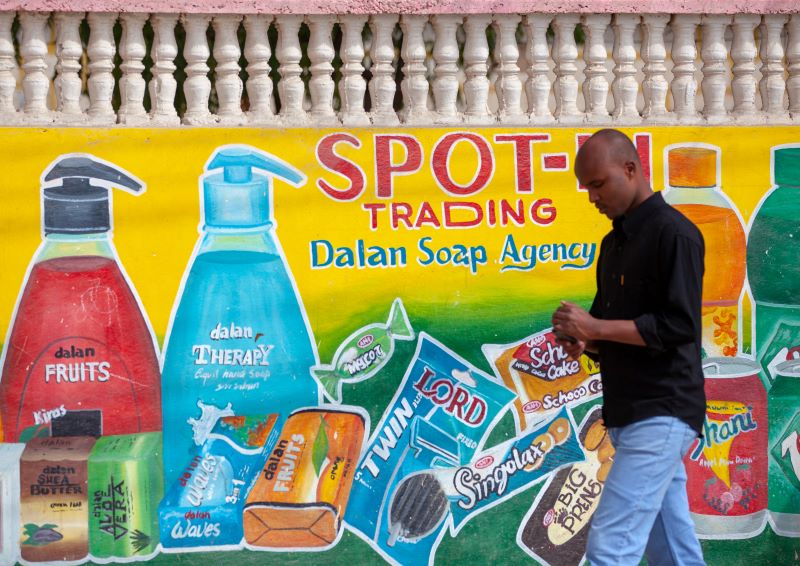Dexis is using this time to examine its culture of wellbeing and to amplify its support of staff during the current pandemic and beyond.
In the second of our two-part series on mental health, stress, and trauma in development, Dexis examines how to address wellbeing among development workers. (See the first blog here.)
Even at the best of times, development professionals, whether they are donors or implementers, work in a wide array of adverse environments from areas in active conflict to countries recovering from natural disasters. In the age of COVID-19 and other disruptions happening in the U.S. and around the world, people and systems are under enormous strain, existing pressures are amplified, and development staff face a new mix of challenges in their personal and professional lives. As a result, reports of depression and anxiety are spiking around the world.
While development workers are adept at functioning remotely and supporting distant colleagues, with restricted travel, they can feel even more removed from direct interaction with local stakeholders at such a crucial time. Floundering economies, overwhelmed local healthcare systems, and disrupted supply chains can threaten to wipe out or set back the many development gains they’ve been supporting for years, magnifying a sense of frustration, powerlessness, and concern for others.
The current pandemic presents the development sector with a powerful moment to collectively pause, reflect, and generate sustained conversations around wellbeing in the development sector. Dr. Siddharth Ashvin Shah with Greenleaf Integrative describes wellbeing as “a positive state enabling people and systems to adapt and reduce the risk of costly personal or operational breakdowns.” He explains that the usual capability to stave off such disruptions is now threatened due to overall fragility, increased loneliness, and people working in more fractured ways.
For example, while hundreds of millions of people are unemployed due to COVID-19, many of those who are still working feel busier than ever. Yet they don’t feel good about their performance because nothing is typical or easy. And although today’s telework environment can help alleviate isolation for some, it heightens the sense of seclusion for others.
Dexis is using this time to examine its culture of wellbeing and to amplify its support of staff during the current pandemic and beyond. Here are ways that Dexis is approaching this process:
- Show empathy. Low reactivity or stoicism can be considered a strong suit during a crisis. But in a team setting, it can also imply a lack of feeling. If a manager seems out of touch with other people’s feeling-states, the risk increases for work breakdowns. Bolstering a sense of camaraderie needs to be more explicit than ever. To do this, managers should articulate how the team is rallying together and, when appropriate, share their own vulnerability with teammates.
- Check in often. Leaders need to acknowledge the problem of maintaining productive social connections at this time. Frequent check ins in different configurations allow managers to recognize and help correct toxic stress in their teams. This can be done at the start of work meetings after some low-key chit chat. In addition, Dexis teams are organizing staff social events like virtual happy hours and providing virtual office hours for teams. One Dexis Director had treats delivered to her team’s homes as a special thank you.
- Be flexible and focused. During a global pandemic, all bets are off. Teams are doing things at all hours. And working parents are juggling childcare with meetings and deadlines. Leaders at every level need to show compassion, flexibility, and adaptability at this time. Managers should be explicit about priorities to maintain wellbeing vis-à-vis performance. Let everyone know the top two or three things they are expected to do right now. Dexis is also offering weekly live and on-demand trainings to encourage the use of all digital tools (besides email) at our disposal, to reduce the heap of messages in employees’ inboxes.
- Help teams find meaning. The pandemic provokes existential questions for everyone’s experience of work and life. Without support, people can overreact or struggle with detachment and a constant undercurrent of ennui. Facilitating conversations around meaning, however, can help transform the effects of trauma and support people integrating their experiences. Development players should bring team discussions back to fundamentals, i.e., interpret their mission in light of the current pandemic and remind staff why they’re engaging in this work in the first place.
- Enable action. Organizations can also help their teams find meaning through supporting staff volunteer opportunities or, like Dexis does, provide matching funds for employee donations to social causes. Both approaches can give employees a sense that they are contributing to positive change during tumultuous times.
- Get outside help. Some teams will benefit from an outside facilitator guiding a regular meeting while watching out for operational stress rather than schedule a special session devoted to self-care. Team leaders also appreciate an opportunity to step back from doing all the checking-in with how everyone is coping because they themselves are overwhelmed and impacted by existential crises. Trained facilitators can help teams name ways they are joining together to take on threats, amplify their common cause, and make meaning out of current complex narratives. Dexis has also offered a virtual health and wellness resources webinar for employees hosted by its healthcare provider.
- Combat Zoom fatigue. The additional concentration required for today’s numerous video calls can lead to “Zoom fatigue.” To help folks recharge, managers can schedule breaks between video calls and allow for video-optional sessions. The switch to virtual formats also limits the ability to read people. To correct for this, call out a person’s name more often than normal to help reduce a sense of loss of connection. Dexis is also keeping a pulse on when there are too many webinars or video calls and exploring no-meeting Fridays.
- Tie it all together. Providing teams with a menu of assistance options is all well and good. But a whole-of-organization approach can refresh existing resources (e.g., HR, benefits, etc.) for relevance in light of COVID-19, weave in new support approaches, and guide people to vetted external resources, including meditation or breathing techniques. Spell out roles for players at all levels to clarify how they can promote their own and their colleagues’ wellbeing.
If the mental and emotional health of development staff and stakeholders aren’t adequately addressed, people can suffer and development outcomes are at risk. Organizations can and should invest in their culture of wellbeing beyond this flashpoint moment. With the right planning, flexibility, and support mechanisms, organizations can help teams to keep their focus, manage emotions, and maintain a sense connection with others during what is an intensely difficult period for all.
Dexis thanks Dr. Siddharth Ashvin Shah of Greenleaf Integrative for contributing to this series.





